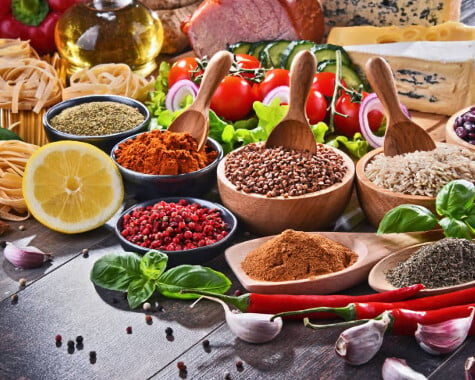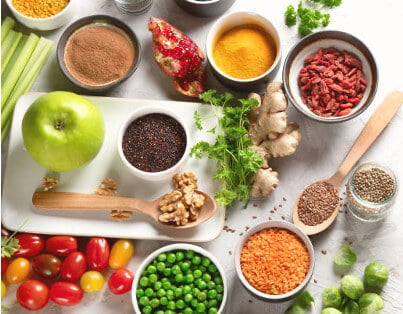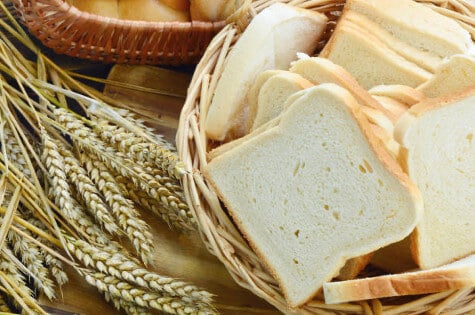One major complaint is peculiar to the feminine gender borders around their menstrual period. Either a complaint about a painful and delayed period or no period at all. This could result from hormonal imbalance and may sometimes resolve on its own without any medication. On the other hand, an absence of a menstrual period may be an indication of a more severe medical condition like PCOS.

According to research, about 116 million women of reproductive age are affected with PCOS worldwide. The majority of women affected with PCOS are usually affected by obesity too, so diet is a major contention. Now the question remains, how does diet affect PCOS?
So, in this article, we discuss what PCOS means and how your diet affects PCOS. Finally, we discuss the types of foods that make PCOS better or worse.
If you have ever been bothered with how to manage your PCOS, then this article is for you. It promises to be an educative read.
What is PCOS?
Polycystic ovarian syndrome (PCOS) is a condition resulting from the overproduction of a particular hormone called androgen, and it is characterized by irregular menstrual flow or amenorrhea (no menstruation). Usually, people with the PCOS condition have several ovarian cysts in their ovaries as a result of excessive production of the androgen hormone.
Symptoms of PCOS

There are some symptoms associated with PCOS and these include acne breakout, excessive hair (hirsutism), and pattern baldness. In a situation whereby these symptoms are not properly managed, these symptoms could degenerate into something worse, including diabetes, endometrial cancer, high blood pressure, and heart disease.
How does diet affect PCOS?
Diet plays a big role in managing PCOS. However, many people diagnosed with this condition can manage their symptoms by changing their diets as advised by trained personnel. Generally, foods rich in fiber and lean protein could help reduce the effects of PCOS while cutting down on carbs and sweetened foods.

Oftentimes, people diagnosed with PCOS have a higher level of insulin than normal and this could raise the sugar level in the body. Insulin is a hormone produced in the pancreas and works to regulate glucose (sugar) in the body. They do this by converting glucose into energy needed for the cells in the body. However, when your body does not produce the sufficient amount of insulin needed for this cell activity, it can raise your blood sugar level beyond normal levels, which could threaten your health. Medically this condition is known as insulin resistance which means you cannot effectively use the insulin your body produces. In this case, your body tries to augment this deficiency by pumping out high levels of insulin to maintain your blood sugar level. Keep in mind that higher levels of insulin increase the production of androgens, including testosterone (male hormone), by the ovaries.
One of the major effects of insulin resistance is an increased body mass index (BMI), which increases weight and leads to obesity. Losing weight is difficult as the body is unable to convert the excess sugar produced.
However, it is difficult to control your weight and insulin resistance when you consume a diet that is rich in carbohydrates, such as processed foods, starchy foods, and sugary foods, consequently leading to weight gain.
Having known this, if you are being diagnosed with PCOS, you want to know which foods are best to include in your diet and those you should avoid. Consequently, the next section highlights a list of foods to include in your diet to make PCOS better.
3 Best Foods for PCOS
- Fiber-rich foods
- Lean protein
- Anti-inflammatory foods
1.
Fiber-rich foods

Since insulin resistance plays a major role in PCOS, you want to make sure you consume foods that have high fiber content. Example of foods rich in fiber includes vegetables (broccoli), avocados, berries, beans, apples, pumpkins, sweet potatoes winter squash, popcorn, dried fruits (almond), and whole grains. Also, you want to make sure you include some greens like arugula and red-leaf lettuce. The green and red peppers are also rich in fiber and can help combat insulin resistance.
2.
Lean protein
Another class of foods you can include in your diet to help regulate insulin resistance are foods rich in lean proteins. Examples of foods rich in lean protein include chicken, white-fleshed fish, tofu, lean beef, low-fat cottage cheese, powdered peanut butter, and plain Greek yogurt. Plain Greek yogurt contains fewer calories and fats and they can help control weight gain. Also, beans, peas, and lentils can help make PCOS better as they are rich in fiber and contains low fat, and can help reduce cholesterol level.
However, because you are trying to lower your fats and burn calories, so avoid eating the skin of meats. You can do this by removing the skin before cooking or after cooking it. You want to make sure to stay off the drumstick and thighs of dark meat as they contain high-fat content. Instead, you want to replace those with white meat such as chicken breast and its tenderloins and wings. By doing this, you are sure to maintain a healthy weight thus making PCOS better.
3.
Anti-inflammatory foods
A last category of foods you can include in your diet are foods that can help reduce inflammation. Examples of such foods include spinach, almonds, kale, walnuts, tomatoes, olive oil, and some fruits including strawberries and blueberries, Also, you want to make sure you include foods that are rich in omega-3 fatty acids for example fatty fish like salmon, mackerel, tuna, herring, striped bass, anchovies and sardines. These fishes are rich in eicosapentaenoic acid (EPA) and docosahexaenoic acid (DHA) and can help reduce the risk of diabetes, metabolic syndrome, and heart and kidney diseases. You can get the benefits either from eating this fish or by taking them as supplements (
fish oil
). Other foods anti-inflammatory foods include cherries, berries (blackberries, raspberries, blueberries, and strawberries), grapes, peppers, cocoa, dark chocolates, avocados, olive oil, broccoli, and mushrooms. In addition, spices such as turmeric are rich in anti-inflammation condiments that you can add to your diet. These foods are rich in antioxidants and mediate anti-inflammatory effects that can help lower the risk of disease.
On the flip side, you should know the foods to limit or avoid if you have PCOS. The next section discusses these foods in detail.
3 Worst Foods for PCOS
- Refined carbohydrate foods
- Foods containing high sugar
- inflammatory foods
1.
Refined carbohydrate foods

If you have PCOS, you want to make sure you drastically reduce or avoid foods that contain refined carbs that is, foods high in carbohydrates because these foods increase insulin resistance and they induce inflammation. Examples of foods that are high in refined carbs include muffins, sugary desserts, pastries, white bread, and any foods that are made with white flour. Pay attention to pasta noodles like semolina, durum flour, and wheat flour their main ingredient are high carbohydrate and low fiber. Instead, you want to be sure to switch to pasta made from bean or lentil flour as they are rich in fiber. Other foods that contain a high carb content include white rice, some cereals, pizza dough, and sweet desserts.
2.
Foods containing high sugar

A PCOS diet should be free from sugary foods, as sugars are a form of carbohydrate, and consuming them can be bad for your health. Sugars come in various forms and names, including dextrose, fructose, and high fructose corn syrup, but they are all sugars. So, you want to make sure you check the ingredient labels on the food items you pick from the store to know if they contain any of these sugars.
3.
Inflammatory foods
Do you know that refined carbohydrates, also known as processed carbs, can increase insulin resistance and, as such, cause inflammation? So, you want to make sure you avoid snack foods like cookies, crackers, chips, and pastries. Also, remove refined grains like white bread, white rice, breakfast cereals, trans fats, and pasta. Also, reduce intake of red and processed meats such as bacon, cured meat, feedlot-raised meat, lunch meats, and hot dogs as they can cause inflammation.
In addition, when making a meal plan for PCOS, ensure to reduce
beverages
, alcohol, dairy products, sodas, and other sugary drinks that could increase your insulin resistance.
Final note

It is worth noting that self-diagnosis of PCOS can be misleading, so you should check in with a doctor to be properly diagnosed. Your doctor is also in the right position to advise you on the types of foods to exclude from your diet and to give recommendations on the most appropriate foods to include in your new diet.
Try to avoid or reduce your intake of these foods may feel overwhelming initially, as you would be limited in your choice of foods. However, with time, you will adapt to eating your new diet, and you will notice changes. Don’t worry too much about not slipping off and relapsing. That only means you are trying hard to make the necessary changes.
Remember, PCOS is not a death sentence, and you can live a normal life if you adhere to the right instructions. Advisedly, cut down on sugars, and don’t lead a sedentary life, move around, or
cycle
. All these will help your weight loss journey and keep you fit. Don’t skip medications, have a lifestyle change, exercise regularly, stick with the right diet, and have enough
sleep
. Also, check in with your doctor regularly. Doing this will help you during this phase.

 By myulikeadmin
By myulikeadmin



